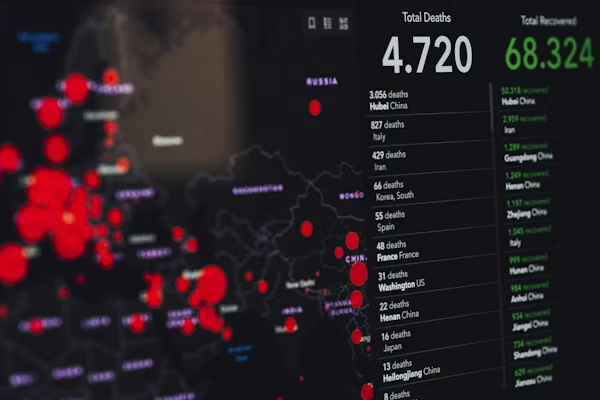In today’s digital age, we’re seeing a wave of innovation sweeping across the blockchain space. From smart contracts to decentralized finance (DeFi), every aspect of the blockchain ecosystem is evolving. But one of the most exciting advancements on the horizon is Quack AI Governance — a revolutionary protocol poised to reshape how decentralized autonomous organizations (DAOs) operate.
Imagine a world where decision-making within DAOs isn’t slow, messy, or dominated by whales. Instead, picture an intelligent, AI-powered governance model that ensures fair participation, real-time responsiveness, and scalable execution. That’s exactly what Quack AI Governance aims to deliver — a new era of automated, intelligent on-chain governance that’s transparent, efficient, and democratic.
Whether you’re a blockchain enthusiast, a crypto investor, or simply curious about what the future of governance looks like, Quack AI Governance is worth exploring. Let’s dive deep into how it works, why it matters, and what it means for the future of decentralized systems.
What is Quack AI Governance?
Quack AI Governance is a groundbreaking protocol that brings artificial intelligence into the heart of blockchain governance. It’s the first AI-powered, on-chain system designed to help DAOs make smarter, faster, and fairer decisions.
Traditional DAOs often struggle with participation issues, voting manipulation, and coordination failures. Quack AI Governance uses AI algorithms to analyze community sentiment, monitor network behavior, and guide voting processes based on data, not just token weight. It introduces a layer of intelligence into DAO frameworks that we’ve never seen before.
Why Traditional Governance Needs a Makeover
Decentralization sounds ideal in theory, but in practice, decentralized governance comes with its fair share of challenges. Voter apathy, lack of real-time adaptability, whale domination, and coordination failures often plague DAOs.
Most DAOs use token-based voting systems, which means that those with more tokens have more say — often at the expense of smaller members. This leads to an imbalanced power structure that contradicts the foundational ethos of decentralization. Moreover, without clear strategies or adaptive intelligence, many governance proposals become stale, outdated, or simply ignored.
That’s where Quack AI Governance enters the scene — offering an intelligent, scalable solution that democratizes governance without sacrificing efficiency.
How Quack AI Governance Works
Quack AI Governance blends artificial intelligence with on-chain mechanics to create a smarter DAO structure. At its core, the system uses machine learning models trained to interpret behavioral data, user input, and historical voting patterns.
It can detect anomalies (like suspicious voting patterns), recognize shifts in community sentiment, and even propose resolutions that align with the broader interests of the DAO. Quack AI can also suggest governance strategies based on predictive analysis, helping DAOs stay ahead of the curve instead of always reacting to problems.
This approach shifts governance from being purely reactive to being proactive and adaptive — a major leap forward in DAO technology.
AI-Driven Participation: A Game Changer
One of the biggest hurdles in DAOs is low voter turnout. Most members don’t have the time or expertise to analyze every proposal. Quack AI helps by summarizing proposals, highlighting potential impacts, and even recommending voting directions based on personalized profiles (without compromising decentralization).
This encourages more participation because it reduces cognitive load. Members can make better decisions with less effort. AI doesn’t replace human input — it enhances it.
Security and Transparency: Built into the Core
Transparency is critical in any governance system. Quack AI Governanc’e ensures that every AI decision, suggestion, or action is fully recorded on-chain. There are no black boxes or hidden processes — everything is auditable by the community.
Security is another major focus. Since Quack AI operates on-chain, it leverages the blockchain’s native security infrastructure. Every interaction is cryptographically verified, and governance logic is encoded into immutable smart contracts, preventing unauthorized alterations or AI manipulation.
Customizable for Any DAO
What makes Quack AI Governance especially powerful is its adaptability. It’s not a one-size-fits-all model — it’s modular and can be tailored to suit the specific needs of different DAOs. Whether a DAO is focused on DeFi, NFTs, gaming, or social impact, Quack’s architecture can be integrated seamlessly.
DAOs can choose their level of AI involvement, adjust decision-making thresholds, and define their own proposal structures. This flexibility means that Quack AI doesn’t impose governance — it empowers it.
A Vision of the Future: Smarter, Not Just Decentralized
The future of governance isn’t just decentralized — it’s intelligent. With AI stepping into the governance layer, DAOs can finally evolve beyond simple token voting models.
Quack AI Governance sets the stage for smarter DAOs that operate more like living organisms than rigid machines. They can adapt to market conditions, internal dynamics, and external threats in real time.
This kind of governance structure can power everything from global-scale financial systems to niche community projects. The future is no longer about choosing between decentralization and efficiency — with Quack AI, we can have both.
Use Cases of Quack AI Governance
DAOs in the NFT space can use Quack AI to moderate content, manage royalties, and ensure fair artist representation.
DeFi protocols can automate fee adjustments, liquidity incentives, and risk mitigation based on AI-driven insights.
Gaming guilds can streamline reward distribution and community moderation without relying on centralized decision-makers.
Social DAOs can measure and act on community engagement data, ensuring that decisions reflect actual user needs.
Why the Blockchain World is Watching Quack AI Governance
The launch of Quack AI Governance has already caught the attention of major blockchain players. Its unique blend of AI and decentralization offers a compelling solution to problems that have hindered DAO adoption for years.
With its commitment to open-source development, transparency, and inclusivity, Quack AI has the potential to become the default standard for AI-governed DAOs. As adoption grows, it’s likely we’ll see an explosion of intelligent governance frameworks across the blockchain ecosystem.
Regulatory Considerations and Ethical AI
With AI in the mix, there’s always the question of ethical governance. Quack AI Governance developers have baked fairness, privacy, and bias-mitigation into their training models.
Additionally, because the governance logic is on-chain, communities can audit how AI decisions are made and vote to change the AI’s behavior if needed. This puts power firmly back in the hands of the community.
As regulations evolve around AI and blockchain, Quack AI’s model could serve as a blueprint for responsible decentralized governance — one that regulators and developers alike can get behind.
Challenges Ahead and What Needs to Improve
No system is perfect. While Quack AI Governance is highly promising, it faces challenges like ensuring unbiased training data, maintaining transparency without complexity, and resisting manipulation from malicious actors.
Also, educating communities on how to interact with AI-powered governance will be key. The learning curve must be simplified so that even non-technical users can fully engage with the protocol.
The Role of the Community in AI Governance
Community feedback and control will always remain central. With Quack AI, members can vote to adjust algorithmic parameters, override AI suggestions, or even disable modules entirely.
This balance ensures that AI remains a tool — not a ruler. The goal is to assist, not replace, human judgment. It’s governance with a brain, but not without a heart.
Quack AI Governance and the Global Market
Although currently gaining momentum in the USA, the implications of Quack AI Governance are global. Emerging markets, decentralized finance hubs, and tech-forward countries can all benefit from this scalable model.
For global DAOs looking to unify diverse voices and make decisions faster, this protocol offers a real solution. It’s multilingual, adaptable, and tuned for international participation.
Conclusion
Quack AI Governance is more than just a new product — it’s a turning point in how we think about decentralized systems. By merging artificial intelligence with blockchain’s trustless architecture, it creates a powerful foundation for the next generation of decision-making.
DAOs are growing, and their needs are becoming more complex. Traditional governance won’t cut it in the long run. With Quack AI, we’re moving into an era of intelligent, inclusive, and impactful governance — one where technology doesn’t just serve us but helps us lead ourselves better.
If you’re a developer, investor, or community member in the blockchain world, Quack AI Governance is something you’ll want to follow closely. The future of DAOs may very well quack — intelligently.
FAQs
What is Quack AI Governance?
It’s an AI-powered on-chain governance protocol designed to improve decision-making in DAOs using intelligent algorithms.
How is it different from traditional DAO voting systems?
Unlike basic token voting, it uses AI to analyze sentiment, behavior, and history to guide smarter, fairer decisions.
Is Quack AI Governance secure?
Yes, all operations are on-chain, transparent, and cryptographically secure.
Can I use Quack AI for any DAO?
Absolutely! It’s modular and customizable, making it adaptable for DAOs in all sectors.
Does AI control everything in this system?
No, the AI assists but final decisions remain with the DAO community through voting.
Where can I learn more or try it out?
You can visit their official website or GitHub page for documentation, tools, and community support.











